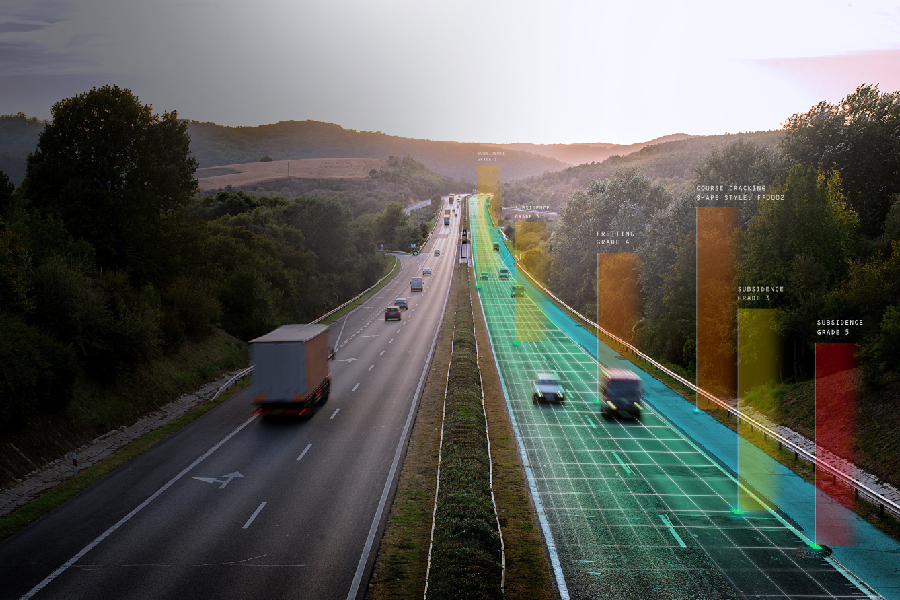
Benefits of Using AI in Highway Design
26 May 2024Table of Contents
Benefits of Using AI in Highway Design
Artificial Intelligence (AI) is revolutionizing highway design and management by introducing advanced methodologies and tools that enhance efficiency, accuracy, safety, and sustainability. Here are several key applications of AI in highway design:
1. Optimizing Route Selection
- Geospatial Analysis: AI algorithms analyze geospatial data, including topography, land use, and environmental constraints, to optimize route selection for new highways.
- Cost-Benefit Analysis: AI can evaluate multiple routing options considering cost, construction feasibility, environmental impact, and social factors to determine the most beneficial route.
2. Predictive Maintenance
- Condition Monitoring: AI systems use data from sensors and IoT devices embedded in highways to monitor conditions in real-time.
- Failure Prediction: Machine learning models predict the likelihood of pavement failures, structural damage, and other issues before they occur, enabling proactive maintenance.
- Resource Allocation: AI helps prioritize maintenance activities and allocate resources efficiently based on predicted needs.
3. Traffic Flow Optimization
- Traffic Simulation: AI-driven traffic simulation models analyze current traffic patterns and predict future traffic flows, helping in the design of highway features like lanes, ramps, and intersections.
- Adaptive Traffic Management: AI algorithms optimize traffic signal timings, ramp metering, and variable speed limits to enhance traffic flow and reduce congestion.
4. Safety Enhancements
- Accident Prediction: AI models analyze historical accident data, traffic conditions, and environmental factors to predict high-risk areas and times for accidents.
- Design for Safety: Using AI insights, designers can incorporate safety features like better signage, improved lighting, and safer road geometry.
- Autonomous Vehicle Integration: AI supports the design of highways compatible with autonomous vehicles, ensuring safe interaction between human-driven and autonomous cars.
5. Sustainability and Environmental Impact
- Environmental Monitoring: AI systems monitor environmental parameters (e.g., air quality, noise levels) during and after highway construction.
- Eco-Friendly Design: AI assists in designing highways that minimize environmental impact by optimizing material use, reducing emissions, and preserving natural habitats.
- Sustainable Materials: AI helps identify and evaluate sustainable construction materials and techniques that reduce the carbon footprint of highway projects.
6. Design Automation
- Generative Design: AI-driven generative design tools create multiple design alternatives based on specified criteria (e.g., cost, safety, aesthetics), allowing engineers to explore a wide range of options quickly.
- BIM Integration: AI enhances Building Information Modeling (BIM) by automating the integration of complex data sets and improving collaboration across different phases of highway design and construction.
7. Project Management
- Scheduling and Planning: AI tools optimize construction schedules, manage logistics, and forecast potential delays or cost overruns.
- Risk Management: AI identifies and assesses risks in highway projects, helping managers mitigate them effectively.
8. User Experience and Feedback
- Crowdsourced Data Analysis: AI analyzes data from social media, mobile apps, and other sources to gather user feedback on highway conditions and design.
- Enhanced User Interfaces: AI improves the design of user interfaces in traffic management systems, making them more intuitive and responsive to user needs.
Examples of AI Applications in Highway Design
- Waycare: Uses AI to predict traffic incidents and optimize traffic management.
- RoadBotics: Employs AI to assess road conditions using smartphone data, helping cities prioritize maintenance.
- Automated Pavement Evaluation: AI systems like those developed by startups and research institutions evaluate pavement conditions using computer vision and machine learning.
Benefits of Using AI in Highway Design
- Improved Efficiency: Reduces time and effort in design and maintenance processes.
- Cost Savings: Optimizes resource allocation, reducing construction and maintenance costs.
- Enhanced Safety: Proactively addresses safety concerns, reducing accidents and fatalities.
- Better Decision-Making: Provides data-driven insights for more informed decision-making.
- Environmental Protection: Supports sustainable practices and minimizes environmental impacts.
Incorporating AI in highway design leads to smarter, safer, and more sustainable infrastructure, meeting the evolving needs of modern transportation systems.


